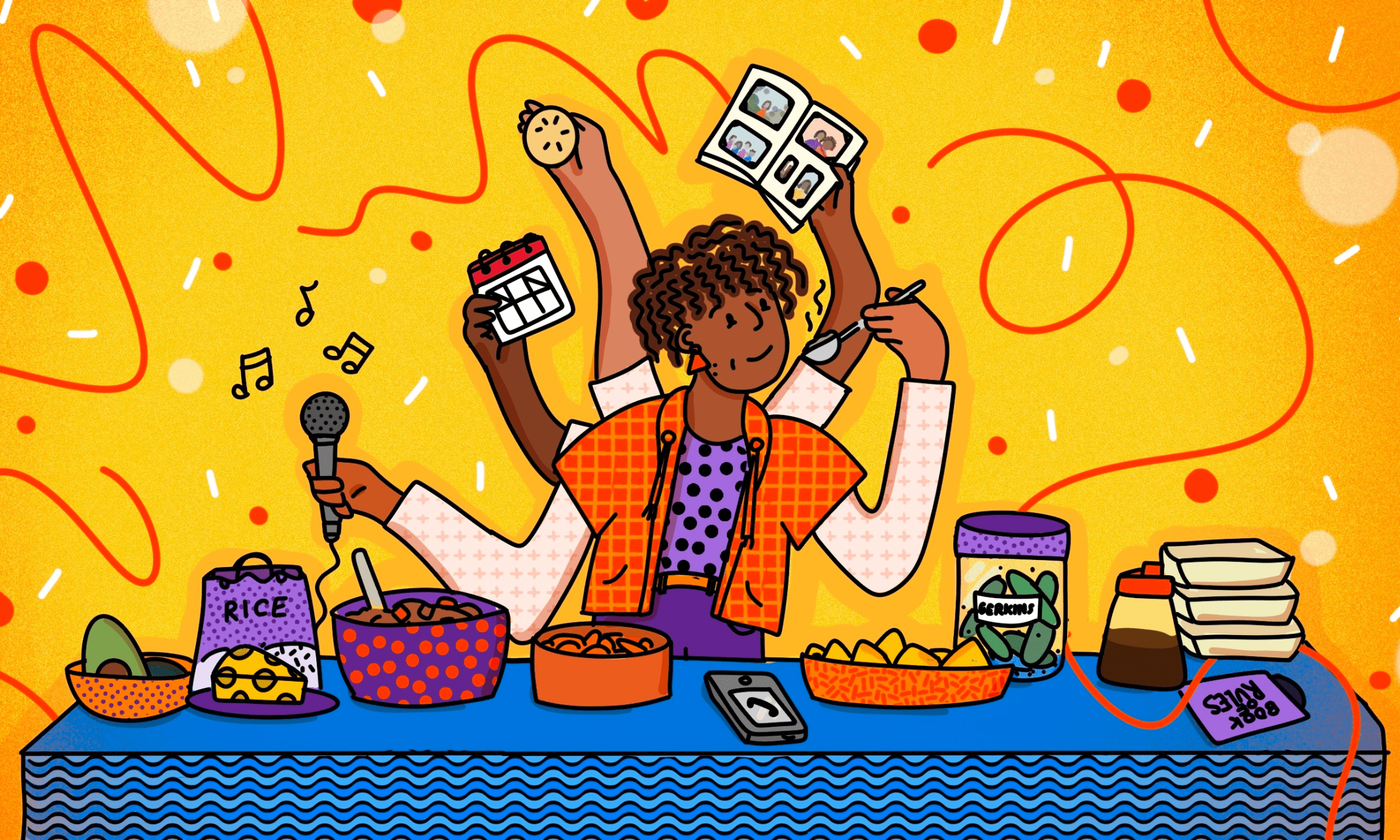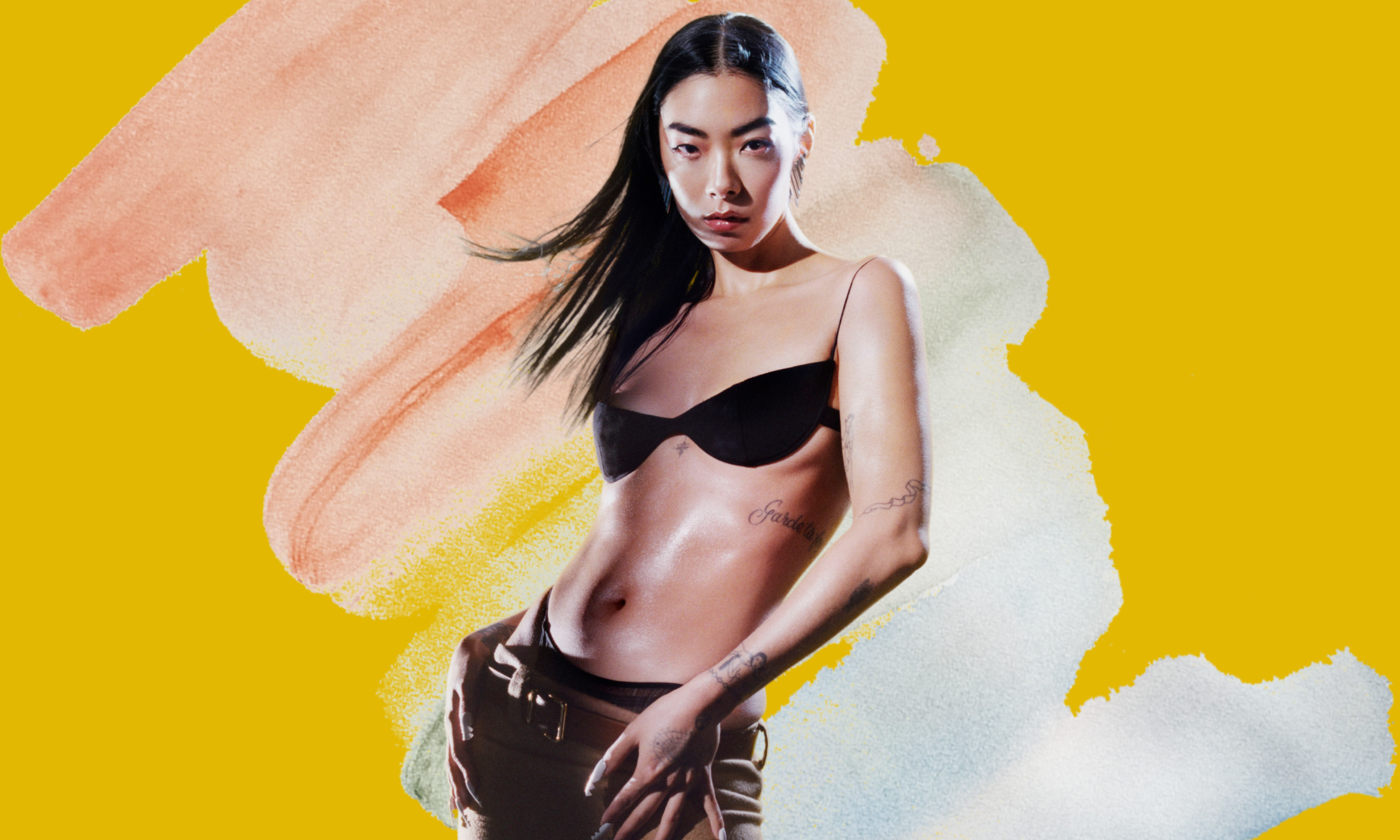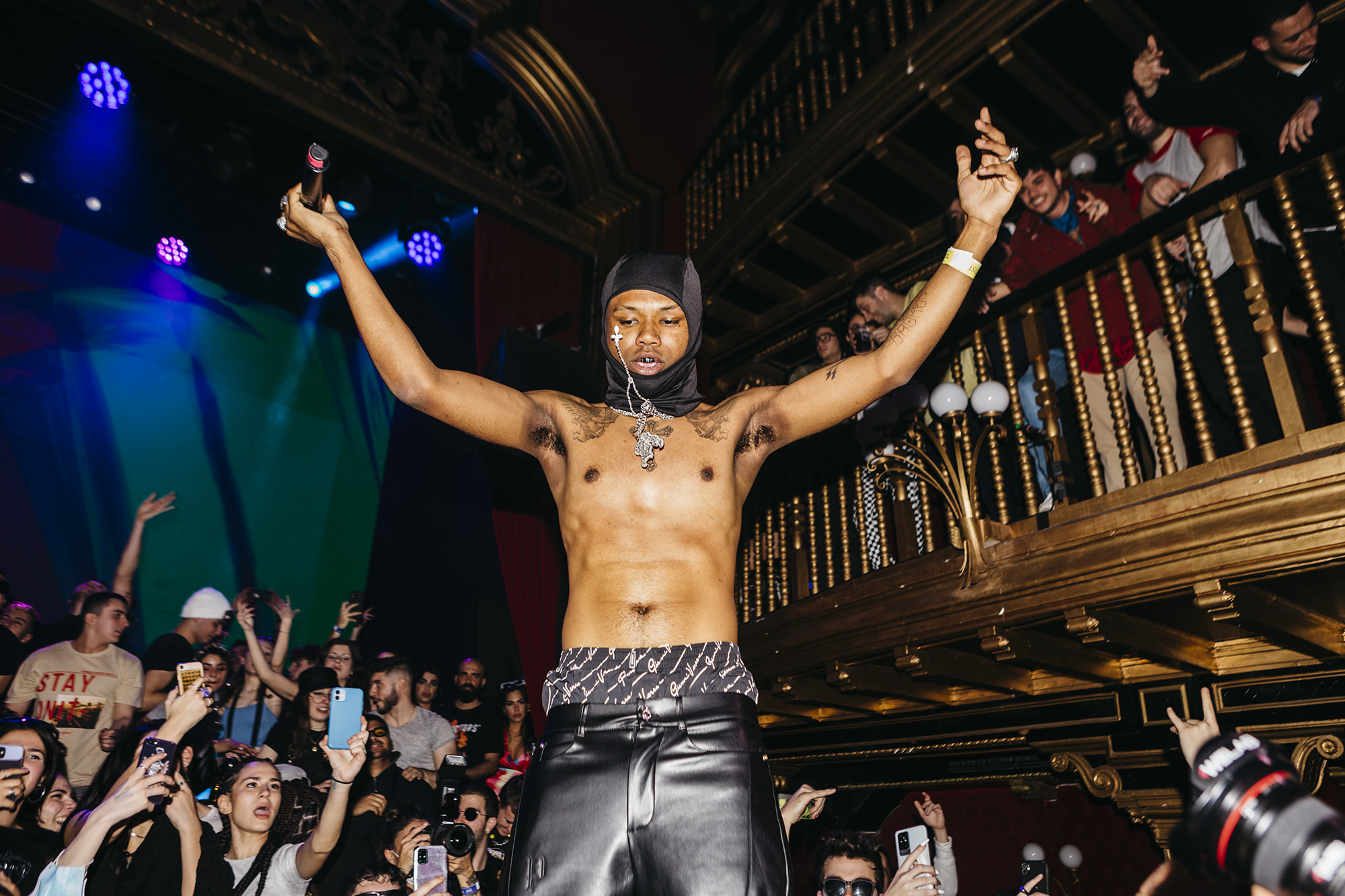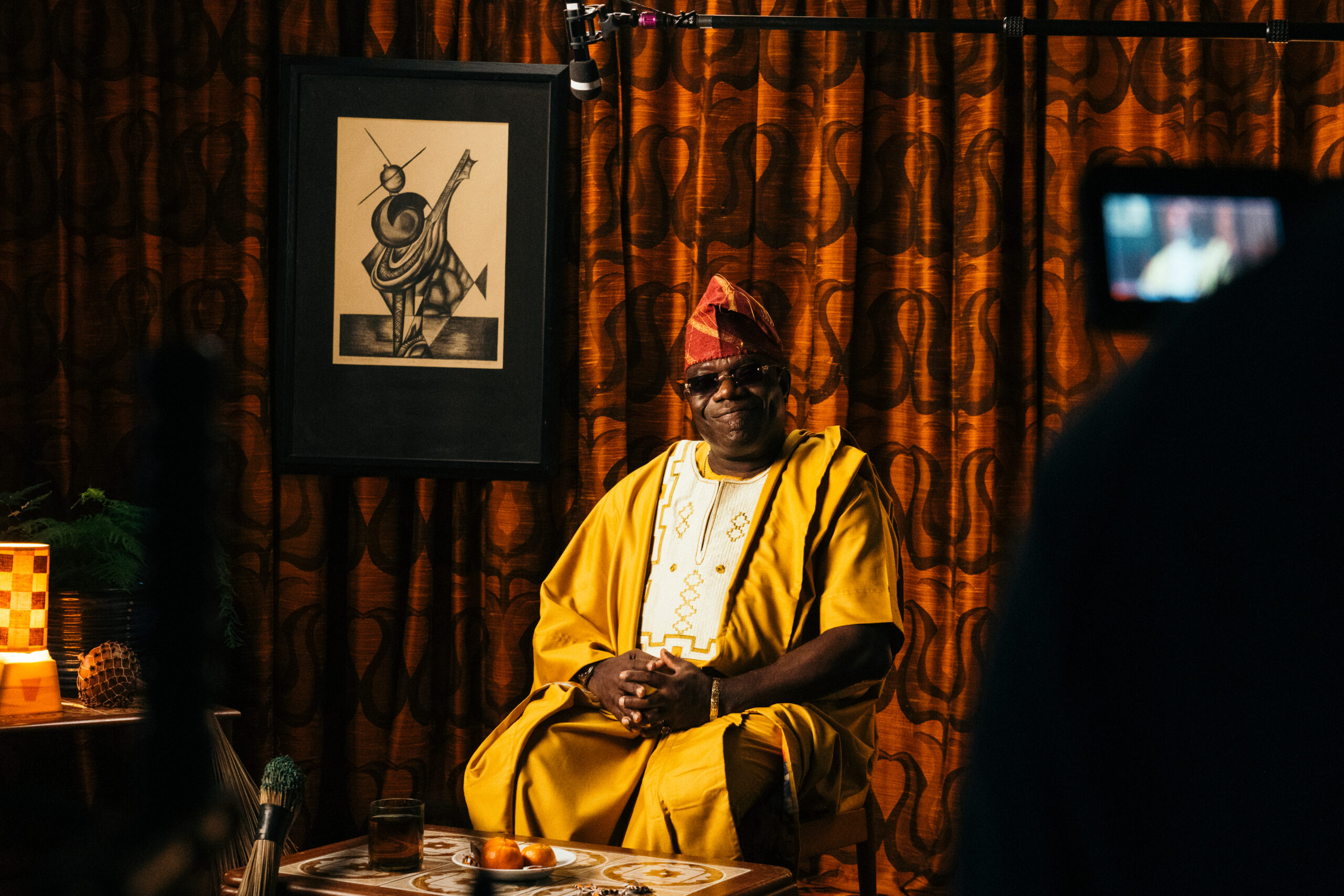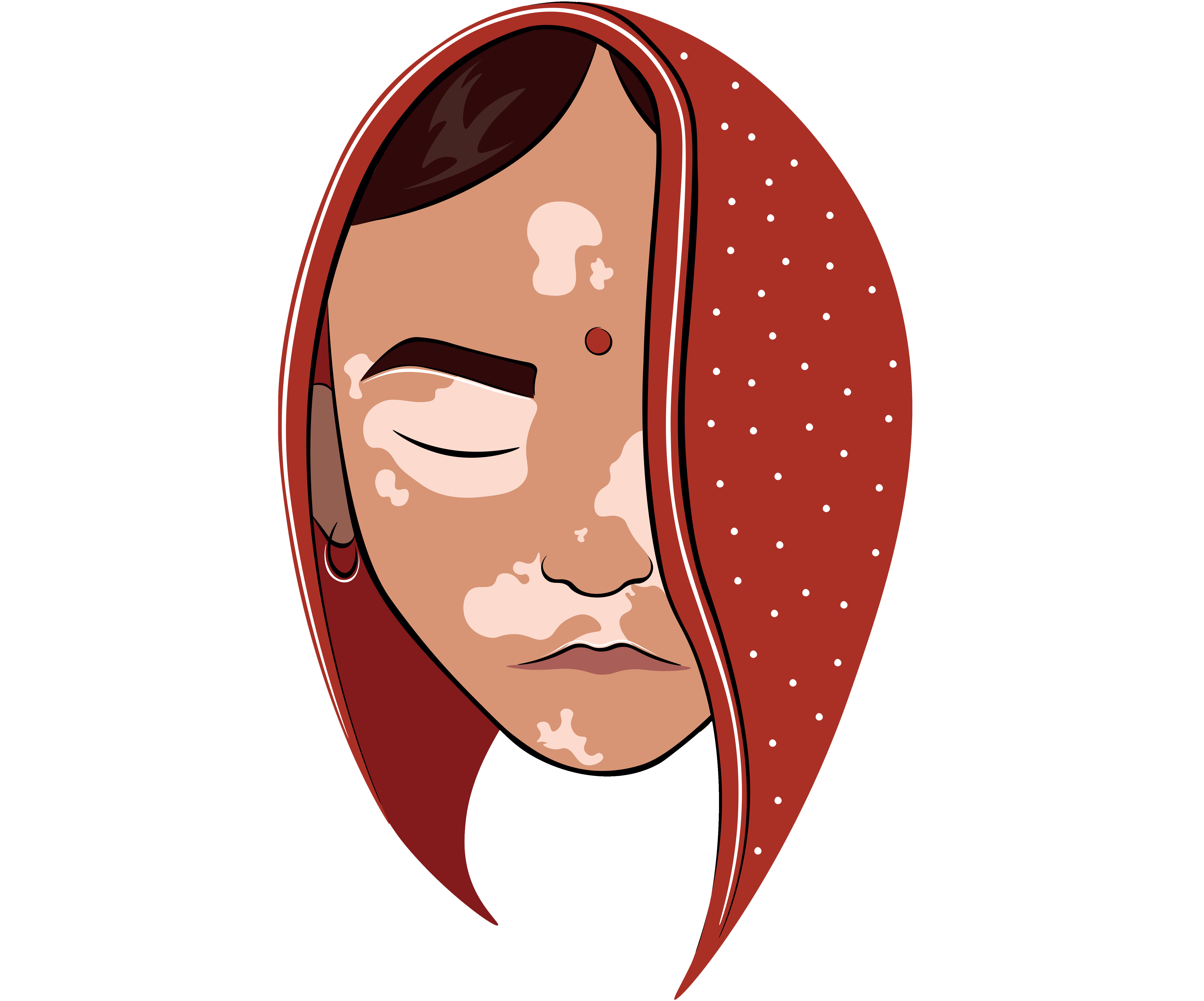
interview by Georgia Chambers
illustration by Kimmie Hoo
“I think people have always been apprehensive about my vitiligo and I think this has much to do with people not wanting to cause offence. By sharing my story, I hope that people won’t be as nervous to ask me about it because I’d rather people be informed than ignorant. I’ve always been a slightly closed book, but books are meant to be read and stories shared so here I am sharing mine. Like Winnie says I’m not a vitiligo sufferer, I don’t want people to think I am suffering.”
I was diagnosed with vitiligo aged seven, so remembering a time growing up without vitiligo is quite difficult. It spread fast, and within about three months from initial diagnosis, there were white spots on every part of my body.
I remember being worried about what the other kids would say when I got to secondary school. It was going to be hard enough making new friends, let alone as the patchy, geeky, chubby Indian kid with glasses. I was terrified to get the bus home from school because of the comments boys might make about me and the girls that would join in to impress them.
In Indian culture, there is a certain degree of modesty to be expected so I didn’t have to worry about people seeing my spots because most of the time, I was covered. I initially tried to conceal it using Dermablend products, who specialise in camouflage makeup. It was a thick face paint that had to be applied in layers. It was horrible – I ended up looking bright orange and it stained everything I touched. As my skin started to become whiter, I also tried bleaching treatment. The cement-like paste burned my skin the moment it touched, and it bleached all my clothes. I would have to use it twice a day and writhed in pain.
“I was called out by my Indian community for being too dark but when I became whiter, I was suddenly too fair”
Indian family members also offered me so-called “cures” for my condition. My Mum’s friend told us of this powder that her friend’s niece took that cleared up her vitiligo, which I tried for two months to no avail. I was also told to avoid “warm” foods such as mangoes and pistachios as they could interfere with my hormones.
Looking back, I began to question why people were so quick to offer me these good-for-nothing “cures.” Was it because my vitiligo was so offensive to them? Did it make them that uncomfortable? Before being diagnosed with vitiligo, I was called out by my Indian community for being too dark but when I became whiter, I was suddenly too fair. I’ve had people call me “gori chiti” which roughly translates to “whiter than a white girl”- kind of ironic considering how obsessed Indian culture is with fairness.
Vitiligo isn’t particularly accepted in Indian culture because rather than being fair through your own volition, vitiligo means you’re fair because you have something wrong with you. The whiter I became, the more I clung on to my Indian identity. I have tried to throw myself into to my culture headfirst whether it be through cooking, dance, fashion and film. I feel like I’ve had to prove to the world twice that just because I’m now mostly white, it doesn’t mean I’ve forgotten my roots and culture.
Whilst there is little representation of vitiligo in Bollywood, I was surprised to read about a film called Kuch Bheege Alfazz which is about a woman with vitiligo. Whilst, in theory, this is great initiative and a way of tackling the taboo in both Indian society and Bollywood, the actress who plays her does not have vitiligo and will have to wear makeup to represent her patches. I’ve not watched it myself, it’s fair to already say that that the film cannot provide an accurate representation of what it’s like to live with vitiligo.
“I felt constantly pressured to let my personality shine through to distract away from my skin”
If you ask anyone close to me, they’d tell you that I’m one of the most confident people they know. However, I can’t help but feel like when they say that, what they really mean to say is “I’m definitely one of the most confident people they know considering how I look.” The confident, loud, opinionated individual that I portray to the world is overcompensating and is desperately trying to detract away from my appearance. I’ve never considered myself to be universally attractive. I don’t really get hit on in bars and whilst I don’t think it’s exclusively down to the vitiligo, there’s no denying that it plays a part. Because of this, I developed a very nonchalant attitude to dating. When I did finally feel ready to date, I tried it with little success. I felt constantly pressured to let my personality shine through to distract away from my skin, and it was just exhausting.
That said, I think I’m more confident than I’ve ever been. I’ve finally experienced things in my life which I previously held back on like dating, having my first kiss and other things I should’ve experienced as a teenager. Winnie Harlow recently called out The Evening Standard for referring to her as a “vitiligo sufferer”- I couldn’t agree more. I’m not suffering; my vitiligo doesn’t make me any less Indian or stop me from what I need to do every day.

